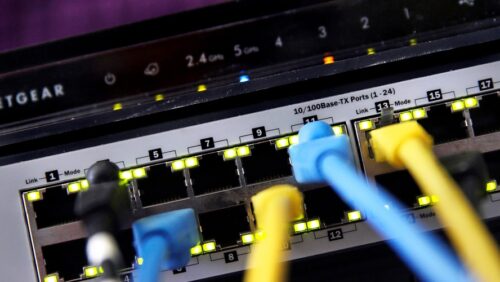
11.2.22 – WKRG
JACKSON, Miss. (WKRG) – A new office created in the last state legislative session is working to map which individual homes in Mississippi are not served by high-speed internet.
The Office of Broadband Expansion and Accessibility of Mississippi (BEAM) says it is starting to map where individual homes across the state do not have access to broadband as it prioritizes where resources should be allocated.
“A person’s zip code should not determine their access to the full range of benefits that high speed broadband access has to offer,” said BEAM director Sally Doty. “The BEAM office is committed to overcoming geographical barriers and leveling the playing field by providing technological opportunity for Mississippians across all corners of our state.”
BEAM has requested coverage maps from internet service providers (ISPs) across the state to identify the homes they reach with broadband– and those that are left out.
Less than 26 percent of homes in Greene County currently have access to broadband with at least 25 megabits per second speed, the 5th lowest accessibility rate in the state, according to Federal Communications Commission data.
The office is planning to host community engagement meetings across the state to discuss high-speed internet access.
“Mississippians, not the government, know best what’s needed to improve their neighborhoods. We want to hear directly from them about the opportunities that exist within their communities,” said Governor Tate Reeves in a press conference Tuesday, Nov. 1.
In an October call with internet service providers, BEAM also requested companies to provide them with contact information with company management to elevate service concerns and complaints it has received from Mississippians.
A main function of the office will be to administer grants and award contracts to ISPs to extend current internet fiber lines and create new connections in areas without broadband.
$162.6 million from the federal Coronavirus Capital Projects Fund will be released to BEAM once its plan for using the funds is approved by the Department of the Treasury, expected this month. ISPs will have to complete those grant-funded projects by 2026.
Mississippi has the second-highest award ($450 million) out of any state from the Federal Communication Commission’s Rural Digital Opportunity Fund awarded in 2020. ISPs won bids to fund infrastructure expansion in Benton, Lafayette, Lee, Marshall, Pontotoc, Prentiss, Tippah and Union counties.
“These funds will be dispersed over ten years, but are already making a big difference,” Reeves said. “As it played a major role in helping the electrical cooperatives of Mississippi sign up over 100,000 high-speed internet subscribers in rural parts of our state.”
In the private sector, electric cooperatives are also working to expand connectivity through parts of south Mississippi.
